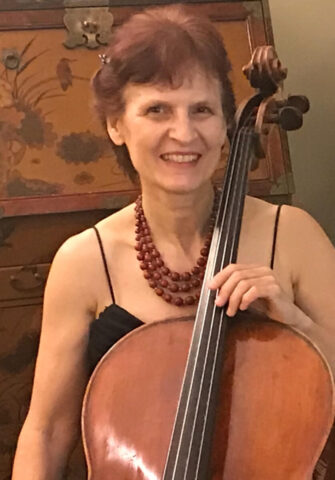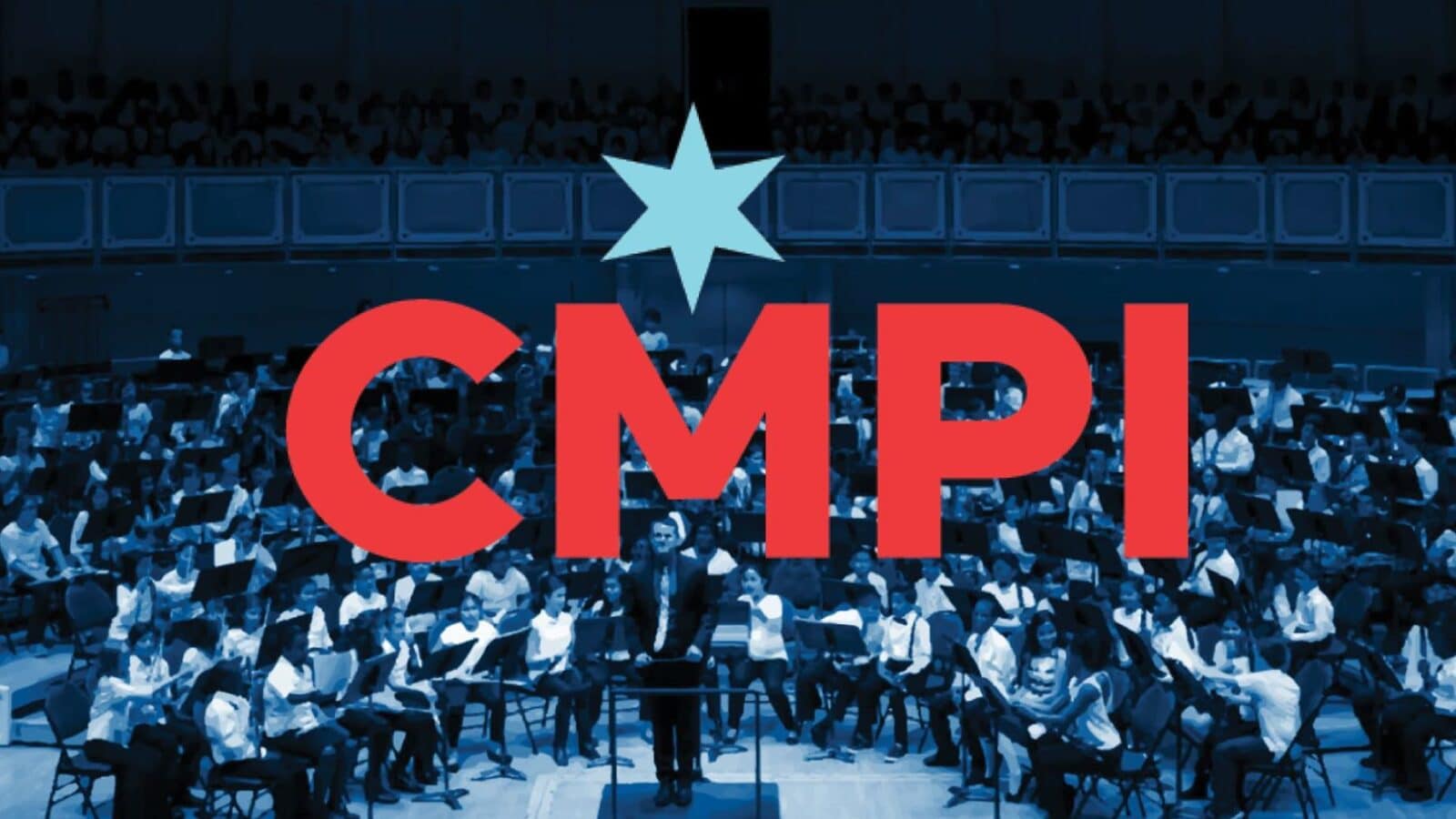Fostering Musicality: CMPI Faculty Member Martine Benmann

CMPI Faculty Member Martine Benmann
Cellist and pedagogue Martine Benmann has been immersed in music-making for quite literally her entire life. “Although my parents were not professional musicians – my mother was a biology teacher and my father was a physician – music was at the heart of our family life. Classical music was always being played in our home; [on] the radio and records, or we were singing or playing chamber music together (my parents, sister, brother and I),” Martine recalled. So, when she decided to pursue music as a career, it didn’t come as a surprise.
Benmann did her undergraduate studies in Germany, studied for a year at Moscow’s Tchaikovsky Conservatory on a scholarship from the French Minister of Culture, and in 1988, moved to Chicago to start her life as a professional musician while getting a master’s degree and an Artist Diploma from Roosevelt University.
Martine’s passion for teaching was ignited in 1992 after reading “Nurtured by Love,” by Shinichi Suzuki. It was Suzuki’s words that led Martine to seek out Gilda Barston, who introduced her to the philosophy and practice of the Suzuki method, and later to complete the ten levels of Suzuki training with Dr. Tanya Carey. Martine then went on to start and lead the Cello Suzuki Program at Sherwood Community Music for 23 years.
Like so many veteran teachers, the onset of the COVID-19 pandemic led Martine to become adept at remote teaching. “I am very grateful to CMPI for sharing the technological information and [supporting] teachers as well as students in this transition,” Martine stated. Once she and her students found their footing, Martine “was amazed to discover that my ears and brain were adjusting to the new medium and that I was able to hear beyond what was sometimes less-than-optimal tone, and I was able to address the technical or musical issues at hand.” Martine also found opportunities for her students to increase their critical listening, both of their own performances and those of great professionals. “Teaching remotely brought some challenges but also new ideas and ways to be efficient,” Martine reflected.
Known for fostering deep musicality and joy for playing in her students, Martine is grateful for the fertile soil of the Hyde Park Suzuki Institute, founded and directed by veteran teacher and CMPI faculty member Lucinda Ali-Landing. “Parents, families, students, teachers and staff all come together to create first and foremost a community, and music is taught in this environment of trust, love and care. When new students [join] my class, I work on connecting them to the rest of the class, to give them a community in which to develop their skill but also make friends and find joy in the process.”
Down the road, as Martine’s students enter high school and have a desire to major in music, Martine works hard to ensure that they will have the training necessary to be ready for college auditions. This includes arranging performance opportunities and matching students with competitions and summer camps that will take them to the next level. “I also make sure they are afloat with music theory and that they listen to concerts,” Martine mentioned. “By the time they enter their junior year they learn the repertoire with which they will audition for college [and] there will be many opportunities for performances and assessment of performances.”
In CMPI, Martine has found a nurturing environment for her students and for herself as a teacher. “I learned about CMPI through a parent. As soon as I went online to read about it I felt inspired and I encouraged two more students to audition. All of them were accepted and I felt so grateful. The students receive so much support through advisory meetings, recitals, mentorship, guidelines and financial support that they can only succeed. [As] a teacher I gained a community of highly knowledgeable colleagues. I feel supported in my work and have opportunities to learn and grow myself.”
